Top 10 Conveyor Belt Manufacturers in World
The global conveyor belt market is projected to reach $5.5 billion by 2026, showcasing its critical role in industrial operations. Conveyor belts are essential in numerous industries, including mining, manufacturing, and food processing, where they enhance efficiency and productivity. This article aims to highlight the top 10 conveyor belt manufacturers in world, showcasing leaders who drive innovation, quality, and sustainability. By examining these top 10 conveyor belt manufacturers in world, we provide insights into the companies setting industry standards and leading the market with their advanced technologies and extensive global reach.
Conveyor Belt Industry and Key Applications
Conveyor belts are integral components of modern industrial processes, facilitating the efficient and continuous movement of materials across various sectors. This section provides an in-depth look at the top 10 conveyor belt manufacturers in world, highlighting the industry’s market size and growth, as well as key applications across different industries.
Market Size and Growth
The global conveyor belt market has seen significant growth over the past few years, driven by the expansion of industrial activities, increased automation, and technological advancements. According to recent market reports, the conveyor belt market was valued at approximately USD 4.5 billion in 2021 and is projected to reach USD 6.7 billion by 2027, growing at a compound annual growth rate (CAGR) of 6.5% during the forecast period.
Several factors contribute to this growth. The increasing demand for efficient material handling systems in industries such as mining, manufacturing, and logistics is a major driver. Additionally, advancements in conveyor belt technologies, such as the development of eco-friendly materials and smart conveyor systems with integrated sensors, are further boosting market growth. The rise in e-commerce and the need for fast, reliable order fulfillment have also spurred the demand for advanced conveyor belt systems in warehousing and distribution centers.
Key Applications
Conveyor belts are utilized across a wide range of industries, each requiring specific belt types to suit their unique operational needs. The primary industries using conveyor belts include:
- Mining:
The conveyor belt for mining industry heavily relies on conveyor belts for the efficient transport of bulk materials such as coal, ores, and minerals. Conveyor belts in this sector are designed to withstand harsh conditions, including abrasion, extreme temperatures, and heavy loads. The use of conveyor belts helps streamline mining operations, reducing manual labor and enhancing safety.
- Manufacturing:
In manufacturing, conveyor belts are essential for moving products and components through various stages of production. From assembly lines to packaging, conveyor belts facilitate smooth and efficient workflows. They are used in the production of automobiles, electronics, consumer goods, and more. The integration of automated conveyor systems in manufacturing plants has significantly improved productivity and product quality. - Food Processing:
The food processing industry uses conveyor belts to transport raw materials, finished products, and packaging materials. Food-grade conveyor belts are designed to meet strict hygiene and safety standards, ensuring that food products are processed in a clean and efficient manner. These belts are often made from materials that are resistant to oils, fats, and chemicals, and are easy to clean and sanitize. - Logistics and Distribution:
Conveyor belts are critical components in logistics and distribution centers, where they are used to move packages, pallets, and other goods. Automated conveyor systems enhance the efficiency of sorting, handling, and shipping processes, enabling faster and more accurate order fulfillment. The rise of e-commerce has significantly increased the demand for conveyor belts in this sector. - Agriculture:
In agriculture, conveyor belts are used for handling grains, seeds, and other agricultural products. They are essential for tasks such as harvesting, sorting, and packaging. Conveyor belts in this industry are designed to handle bulk materials efficiently while minimizing product damage. - Pharmaceutical:
The pharmaceutical industry requires conveyor belts for the safe and efficient transport of medicines, packaging materials, and laboratory equipment. These belts must meet stringent hygiene and safety standards to ensure that pharmaceutical products are processed without contamination.
What is Top 10 Conveyor Belt Manufacturers in the World
When it comes to industrial material handling, conveyor belts play a crucial role in facilitating the efficient movement of goods. The following is a detailed analysis of the top 10 conveyor belt manufacturers in the world, highlighting their innovation, quality, global reach, customer feedback, and sustainability practices.
Criteria for Ranking
Innovation
Innovation is a key factor in determining the leading conveyor belt manufacturers. Companies that consistently develop new technologies and improve existing ones are better equipped to meet the changing needs of the industry. This includes advancements in material science, automation, and smart technology integration.
Quality
Product quality and durability are paramount in the conveyor belt industry. Manufacturers who prioritize high-quality materials and rigorous testing processes ensure their products can withstand the demanding conditions of various industrial applications, leading to longer-lasting and more reliable conveyor belts.
Global Reach
The global reach of a manufacturer indicates its market penetration and operational scale. Companies with extensive distribution networks and production facilities worldwide can better serve their customers and respond to market demands promptly.
Customer Feedback
Customer feedback is a vital component of the ranking criteria. Positive reviews and high levels of customer satisfaction reflect a manufacturer’s ability to meet or exceed client expectations. This includes aspects such as product performance, reliability, and customer service.
Sustainability
In today’s market, sustainability is increasingly important. Manufacturers that adopt eco-friendly practices and sustainable materials demonstrate a commitment to environmental responsibility, which is becoming a significant consideration for many businesses.
The Top 10 Conveyor Belt Manufacturers in the World
1. GRAM Conveyor
GRAM Conveyor, headquartered in China, is a renowned manufacturer specializing in heavy-duty conveyor rollers. The company offers an extensive range of conveyor roller solutions tailored for various industries, including mining, logistics, and manufacturing. GRAM Conveyor is distinguished by its innovative products, such as high-quality nylon rollers known for their durability and lightweight properties.

Innovation: GRAM Conveyor is recognized for its continuous innovation in conveyor roller technology, particularly in developing high-performance rollers for demanding industrial applications.
Quality: Their products are acclaimed for their robustness and high quality, capable of enduring harsh operational conditions.
Global Reach: With operations in various countries, GRAM Conveyor boasts a significant global footprint.
Customer Feedback: GRAM Conveyor receives positive reviews for its reliable products and excellent customer service.
Sustainability: The company is committed to sustainable practices, including the use of eco-friendly materials and energy-efficient production processes.
Key Markets: GRAM Conveyor serves major industries such as mining, logistics, manufacturing, and agriculture. The company has a strong presence in China, enhancing its global influence.
2. Continental AG
Continental AG, headquartered in Germany, is a leading global supplier of conveyor belts. The company offers a wide range of conveyor belt solutions for various industries, including mining, automotive, and agricultural. Continental AG is known for its innovative products, such as eco-friendly conveyor belts made from renewable materials.
Continental AG operates a vast network of sales offices, warehouses, and distribution centers across multiple continents. This network allows the company to supply its high-quality conveyor belts to diverse industries, including mining, automotive, and agriculture.
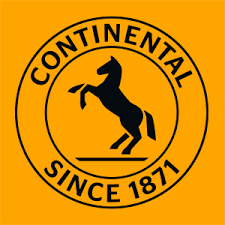
Innovation: Continental is known for its continuous innovation in conveyor belt technology, particularly in developing high-performance belts for various industries.
Quality: Their products are renowned for their durability and high quality, capable of handling extreme conditions.
Global Reach: With operations in over 60 countries, Continental has a vast global presence.
Customer Feedback: Continental enjoys positive reviews for its reliable products and excellent customer support.
Sustainability: The company is committed to sustainable practices, including using eco-friendly materials and energy-efficient production processes.
Key Markets: Continental AG serves major industries such as mining, automotive, agriculture, and manufacturing. The company has a strong presence in Europe, North America, Asia, and Africa.
3. Bridgestone Corporation
Bridgestone, a Japanese multinational, is renowned for its high-quality rubber products, including conveyor belts. Bridgestone’s conveyor belts are designed for durability and performance in heavy-duty applications, particularly in the mining and industrial sectors. The company’s advanced technology and rigorous quality standards make it a top choice for conveyor belt solutions.
Bridgestone leverages its global presence and extensive distribution channels to serve markets in Asia, Europe, North America, and beyond. The company’s distribution strategy includes partnerships with local distributors and direct sales channels to ensure efficient market penetration.
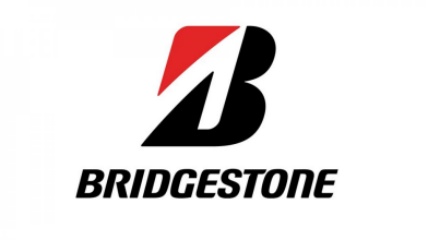
Innovation: Bridgestone has a strong focus on innovation, developing advanced conveyor belt technologies for efficient material handling.
Quality: They offer high-quality, durable belts designed to reduce maintenance and downtime.
Global Reach: Bridgestone operates globally, serving customers across multiple continents.
Customer Feedback: Customers praise Bridgestone for its dependable products and responsive service.
Sustainability: The company emphasizes sustainability, incorporating recycled materials and reducing environmental impact through efficient manufacturing processes.
4. Fenner Dunlop
Fenner Dunlop, a subsidiary of Michelin, is a leading manufacturer of conveyor belts with a strong presence in North America, Australia, and Europe. The company specializes in providing customized conveyor belt solutions for mining, construction, and manufacturing industries. Fenner Dunlop’s products are known for their reliability, durability, and innovation.
Fenner Dunlop, a subsidiary of Michelin, has a robust distribution network supported by its parent company’s global infrastructure. This network enables the company to deliver its innovative conveyor belts to key markets around the world, ensuring high availability and prompt delivery.
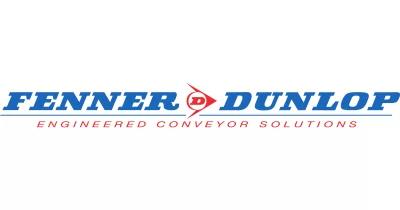
Innovation: Fenner Dunlop leads in developing technologically advanced conveyor belts tailored for mining and industrial applications.
Quality: Their belts are known for superior resistance to wear and tear.
Global Reach: With a strong presence in Europe, North America, and Asia, Fenner Dunlop effectively serves a global market.
Customer Feedback: Fenner Dunlop receives high marks for product reliability and customer service.
Sustainability: The company implements environmentally friendly practices and promotes sustainable materials.
Technological Advancements: Fenner Dunlop invests heavily in research and development, leading to innovations like fire-resistant and energy-efficient conveyor belts. Their focus on technology ensures high performance and safety.
Applications: Fenner Dunlop’s products are widely used in mining, construction, and manufacturing industries, highlighting their versatility and reliability.
5. Sempertrans
Sempertrans, part of the Semperit Group, is a leading manufacturer of conveyor belts based in Austria and has a significant impact on the conveyor belt industry. The company provides high-performance conveyor belt solutions for industries such as mining, cement, and steel. Sempertrans is known for its innovative products, including flame-resistant and energy-saving conveyor belts.

Innovation: Sempertrans is recognized for its innovative approach to conveyor belt technology, focusing on high-performance solutions.
Quality: Their belts are built to last, providing excellent resistance to abrasion and impact.
Global Reach: Sempertrans operates globally, with a strong presence in Europe and Asia.
Customer Feedback: The company receives favorable reviews for its robust products and reliable service.
Sustainability: Sempertrans is committed to sustainability, focusing on reducing environmental impact and enhancing energy efficiency.
Sustainability Efforts: Sempertrans is committed to sustainable practices, including reducing energy consumption and using environmentally friendly materials. Their efforts contribute to a greener industrial landscape.
Product Portfolio: Sempertrans offers a wide range of conveyor belts, including steel cord and textile belts, suitable for various applications such as mining, cement, and steel production.
6. Goodyear Rubber Products, Inc.
Goodyear Belting, a division of the Goodyear Tire & Rubber Company, offers a wide range of conveyor belts for various industrial applications. The company’s belts are designed to provide optimal performance, durability, and efficiency. Goodyear Belting’s extensive product portfolio includes both standard and custom-designed conveyor belts.
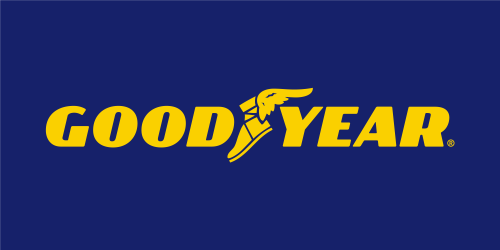
Innovation: Goodyear continues to innovate with new materials and belt designs to enhance efficiency and reliability.
Quality: Known for high-quality and robust conveyor belts, Goodyear products are trusted across various industries.
Global Reach: Goodyear’s extensive global network allows it to cater to a wide range of markets effectively.
Customer Feedback: Customers commend Goodyear for its product quality and dependable customer support.
Sustainability: The company actively pursues sustainable practices, including reducing carbon emissions and using recycled materials.
Global Distribution: Goodyear Rubber Products, Inc. has a strong global distribution network, catering to markets in North America, Europe, and Asia.
7. Habasit AG
Habasit, headquartered in Switzerland, is a leading provider of conveyor belts and related products. The company specializes in lightweight conveyor belts for industries such as food processing, packaging, and logistics. Habasit’s products are known for their high quality, flexibility, and ease of installation.
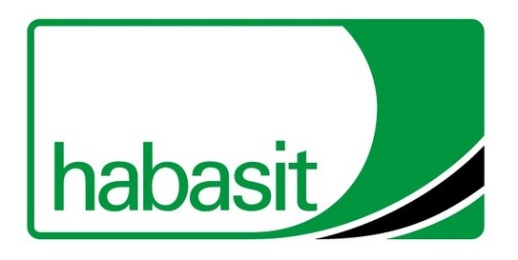
Innovation: Habasit is a pioneer in conveyor belt innovation, particularly in food-safe and high-efficiency belts.
Quality: Their products are known for excellent quality and performance, meeting strict industry standards.
Global Reach: Habasit has a significant global footprint with production facilities and distribution networks worldwide.
Customer Feedback: Customers appreciate Habasit’s quality products and proactive customer support.
Sustainability: The company is dedicated to sustainability, focusing on reducing waste and improving energy efficiency in its operations.
8. Mitsuboshi Belting Ltd.
Mitsuboshi Belting, a Japanese company, manufactures a wide range of conveyor belts for industrial applications. The company’s products are known for their reliability, durability, and resistance to harsh operating conditions. Mitsuboshi Belting serves industries such as automotive, agriculture, and manufacturing.
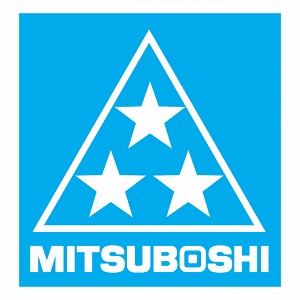
Innovation: Mitsuboshi is known for its continuous innovation in conveyor belt technology, particularly in automotive and industrial applications.
Quality: Their belts are highly regarded for their quality and durability.
Global Reach: Mitsuboshi has a significant presence in Asia and continues to expand globally.
Customer Feedback: Customers appreciate Mitsuboshi’s reliable products and excellent support.
Sustainability: The company is dedicated to sustainable practices, focusing on reducing environmental impact and improving resource efficiency.
9. Bando Chemical Industries, Ltd.
Bando Chemical Industries, based in Japan, is a major manufacturer of conveyor belts and power transmission belts. The company’s conveyor belts are used in various industries, including automotive, logistics, and food processing. Bando is known for its commitment to quality, innovation, and customer satisfaction.

Innovation: Bando conveyor belt Chemical is a leader in developing advanced conveyor belts for various industries.
Quality: Their products are known for their superior quality and long-lasting performance.
Global Reach: Bando Chemical operates globally, serving customers across different continents.
Customer Feedback: The company is praised for its high-quality products and responsive customer service.
Sustainability: Bando Chemical is committed to sustainability, integrating eco-friendly practices into its manufacturing processes.
Technological Leadership: Bando is at the forefront of technological advancements, offering products like ultra-high-heat-resistant belts and oil-resistant belts. These innovations cater to demanding industrial environments.
Market Reach: Bando serves major industries including automotive, logistics, and food processing, with a strong presence in Asia, North America, and Europe.
10. Ammeraal Beltech
Ammeraal Beltech, headquartered in North America, is a leading global manufacturer of conveyor belts. The company provides a wide array of conveyor belt solutions designed for various industries, including food processing, logistics, and automotive. Ammeraal Beltech is celebrated for its innovative products, including specialized belts for different industrial needs.
Ammeraal Beltech maintains a vast network of sales offices, warehouses, and distribution centers across multiple continents. This extensive network allows the company to supply its high-quality conveyor belts to a diverse range of industries, ensuring efficient and reliable service.
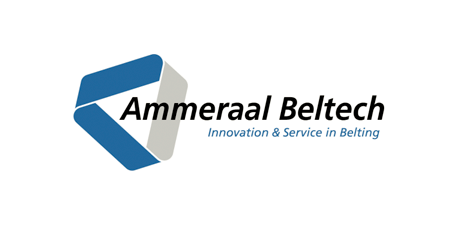
Innovation: Ammeraal Beltech excels in innovative solutions for various industries, including food processing and logistics.
Quality: Their conveyor belts are designed for longevity and consistent performance.
Global Reach: The company operates in over 150 countries, ensuring a broad market presence.
Customer Feedback: Positive customer feedback highlights Ammeraal Beltech’s commitment to quality and service.
Sustainability: Ammeraal Beltech prioritizes sustainable manufacturing and the development of eco-friendly products.
Mining Conveyor Belt Manufacturers
Importance in Mining
Conveyor belts are indispensable in the mining industry, facilitating the efficient transport of materials such as ores, coal, and minerals. These belts enhance productivity by automating the movement of heavy loads over long distances, reducing the need for manual labor and increasing operational efficiency. In mining, conveyor belts must be robust and durable to withstand harsh conditions, including abrasive materials, extreme temperatures, and heavy loads.
Technological Innovations
The mining conveyor belt sector has seen significant technological advancements aimed at improving efficiency, safety, and sustainability. Some of the latest innovations include:
Smart Conveyor Belts: Integrating sensors and IoT technology, smart conveyor belts monitor real-time data on belt performance, wear, and tear. This allows for predictive maintenance, reducing downtime and extending the lifespan of the belts.
High-Temperature Resistant Belts: New materials and technologies have led to the development of conveyor belts that can withstand extreme temperatures, making them ideal for mining operations in harsh climates.
Energy-Efficient Designs: Manufacturers are focusing on creating energy-efficient conveyor belts that reduce power consumption and operational costs, contributing to more sustainable mining practices.
Enhanced Safety Features: Innovations such as fire-resistant materials and improved belt alignment systems enhance safety in mining operations, protecting workers and reducing the risk of accidents.
Top 10 Conveyor Belt Manufacturers in World Key Import Markets
Conveyor belts are imported by various regions to support their industrial activities. The key import markets for conveyor belts include:
- North America:
The United States and Canada are significant importers of conveyor belts, driven by their strong industrial base in manufacturing, mining, and logistics. The demand for advanced conveyor belt solutions in these countries is high, contributing to substantial imports from leading manufacturers. - Europe:
Europe, with its diverse industrial landscape, is a major importer of conveyor belts. Countries like Germany, France, and the United Kingdom have a high demand for conveyor systems used in automotive manufacturing, food processing, and material handling industries. - Asia-Pacific:
The Asia-Pacific region, particularly China, India, and Japan, is a crucial import market for conveyor belts. Rapid industrialization and infrastructure development in these countries drive the demand for efficient material handling solutions, resulting in significant imports from global manufacturers. - Middle East and Africa:
The Middle East and Africa are emerging markets for conveyor belts, with increasing industrial activities in mining, construction, and oil and gas sectors. The import of conveyor belts in these regions is expected to grow as industries expand and modernize. - South America:
Countries like Brazil and Argentina are important importers of conveyor belts, driven by their mining and agricultural sectors. The need for efficient material handling systems in these industries fuels the demand for imported conveyor belts.
Challenges and Opportunities
The global import landscape for conveyor belts presents both challenges and opportunities for manufacturers and importers.
Challenges:
- Trade Regulations: Varying trade regulations and tariffs across different countries can complicate the import process. Manufacturers must navigate these regulations to ensure smooth transactions and avoid delays.
- Logistics and Supply Chain: Ensuring timely delivery and managing logistics across international borders can be challenging. Manufacturers need robust supply chain management systems to handle the complexities of global distribution.
- Market Competition: The conveyor belt market is highly competitive, with numerous players vying for market share. Manufacturers must continuously innovate and offer competitive pricing to maintain their market position.
Opportunities:
- Technological Advancements: Advancements in conveyor belt technology, such as smart conveyors with integrated sensors and environmentally friendly materials, present significant growth opportunities. Manufacturers that invest in R&D can capitalize on the demand for advanced solutions.
- Emerging Markets: Emerging markets in regions like the Middle East, Africa, and South America offer substantial growth potential. Manufacturers can expand their presence in these regions by establishing local partnerships and tailoring their products to meet regional needs.
- Sustainability: There is a growing demand for sustainable and eco-friendly conveyor belt solutions. Manufacturers that focus on developing environmentally friendly products and practices can gain a competitive edge and tap into this expanding market segment.
Sustainability and Future Trends
Eco-Friendly Practices
The top 10 conveyor belt manufacturers in the world are increasingly adopting eco-friendly practices to address environmental concerns. These practices include:
- Recycling and Reuse: Many manufacturers are incorporating recycled materials into their production processes, reducing waste and conserving natural resources.
- Energy Efficiency: Companies are investing in energy-efficient technologies and processes to lower their carbon footprint. This includes using renewable energy sources and optimizing manufacturing operations to reduce energy consumption.
- Sustainable Materials: The use of sustainable and biodegradable materials is on the rise, helping to reduce the environmental impact of conveyor belts.
- Green Manufacturing: Implementing green manufacturing practices, such as minimizing emissions and reducing water usage, is becoming standard among top manufacturers.
Future Innovations
The future of conveyor belt technology looks promising with several potential advancements on the horizon:
- Smart Conveyor Belts: Integration of IoT and sensor technology will enable real-time monitoring of conveyor belt performance, predictive maintenance, and enhanced operational efficiency.
- Advanced Materials: Research into new materials will lead to the development of conveyor belts that are lighter, stronger, and more resistant to extreme conditions.
- Automation and AI: Increased automation and the use of artificial intelligence will streamline conveyor belt operations, making them more efficient and reducing the need for manual intervention.
- Modular Systems: The development of modular conveyor belt systems will provide greater flexibility and ease of maintenance, allowing for quick adjustments and replacements.
Market Projections
The conveyor belt market is expected to see significant growth in the coming years, driven by several factors:
- Industrial Expansion: The ongoing expansion of industries such as mining, manufacturing, and food processing will drive demand for conveyor belts.
- Technological Advancements: Innovations in conveyor belt technology will create new opportunities and applications, further boosting market growth.
- Sustainability Trends: The increasing focus on sustainability will encourage the adoption of eco-friendly conveyor belt solutions, opening up new market segments.
- Globalization: As global trade continues to expand, the demand for efficient material handling solutions will rise, propelling the growth of the conveyor belt market.
FAQS about Top 10 Conveyor Belt Manufacturers in World
The top 5 conveyor manufacturers globally are recognized for their innovation, quality, and reliability. These companies include:
Dorner Mfg. Corp. – Known for its wide range of conveyor solutions, Dorner provides both standard and custom-built conveyors.
Hytrol Conveyor Co., Inc. – Hytrol is renowned for its durable, high-performance conveyors and has a comprehensive line of products suitable for various industries.
FlexLink – Specializing in automated conveyors, FlexLink offers efficient solutions tailored to specific production needs.
mk North America, Inc. – mk North America is praised for its versatile conveyor systems, offering both standard and custom options.
TGW Logistics Group – TGW is a leader in integrated automated systems, providing advanced conveyor technology and material handling solutions.
These manufacturers are recognized for their ability to deliver reliable, efficient, and innovative conveyor systems that meet the diverse needs of industries worldwide.
The biggest conveyor belt companies are industry giants known for their extensive product ranges and global reach. They include:
Continental AG – A leading manufacturer of conveyor belts, Continental AG offers a comprehensive range of products for various applications, known for their durability and performance.
Bridgestone Corporation – Bridgestone is renowned for its high-quality conveyor belts that cater to demanding industrial environments.
Fenner Dunlop – A key player in the conveyor belt industry, Fenner Dunlop specializes in providing robust solutions for mining and industrial sectors.
Goodyear Rubber Products, Inc. – Goodyear offers a wide array of conveyor belts known for their superior quality and longevity.
Sempertrans – Part of the Semperit Group, Sempertrans is recognized for its innovative conveyor belt solutions and strong market presence.
These companies are distinguished by their commitment to innovation, quality, and extensive product offerings, making them leaders in the conveyor belt industry.
Who are the major belt manufacturers?
Major belt manufacturers are companies that lead the market with their extensive product lines and innovative solutions. Key players include:
Continental AG – As a major manufacturer, Continental AG provides an extensive range of high-quality conveyor belts for various industries.
Bridgestone Corporation – Bridgestone stands out for its durable and reliable conveyor belts, widely used in many industrial applications.
Fenner Dunlop – Known for its robust and efficient conveyor belts, Fenner Dunlop caters to the mining, industrial, and material handling sectors.
Goodyear Rubber Products, Inc. – Goodyear is a major player with a reputation for producing high-performance conveyor belts.
Sempertrans – With innovative solutions and a strong market presence, Sempertrans is a significant manufacturer in the conveyor belt industry.
These companies are recognized for their quality, innovation, and ability to meet the diverse needs of various industries.
The world’s largest conveyor belt system is located in the Western Sahara and is known as the Bou Craa conveyor belt. This conveyor belt is approximately 61 miles (98 kilometers) long and transports phosphate from the Bou Craa mines to the port city of El Aaiún. This massive conveyor belt system plays a crucial role in the phosphate industry, highlighting the importance of efficient and large-scale material transportation. The Bou Craa conveyor belt is a testament to engineering prowess and the ability to design systems capable of handling immense quantities of material over long distances.
Last Updated on August 14, 2024 by Jordan Smith
Jordan Smith, a seasoned professional with over 20 years of experience in the conveyor system industry. Jordan’s expertise lies in providing comprehensive solutions for conveyor rollers, belts, and accessories, catering to a wide range of industrial needs. From initial design and configuration to installation and meticulous troubleshooting, Jordan is adept at handling all aspects of conveyor system management. Whether you’re looking to upgrade your production line with efficient conveyor belts, require custom conveyor rollers for specific operations, or need expert advice on selecting the right conveyor accessories for your facility, Jordan is your reliable consultant. For any inquiries or assistance with conveyor system optimization, Jordan is available to share his wealth of knowledge and experience. Feel free to reach out at any time for professional guidance on all matters related to conveyor rollers, belts, and accessories.



